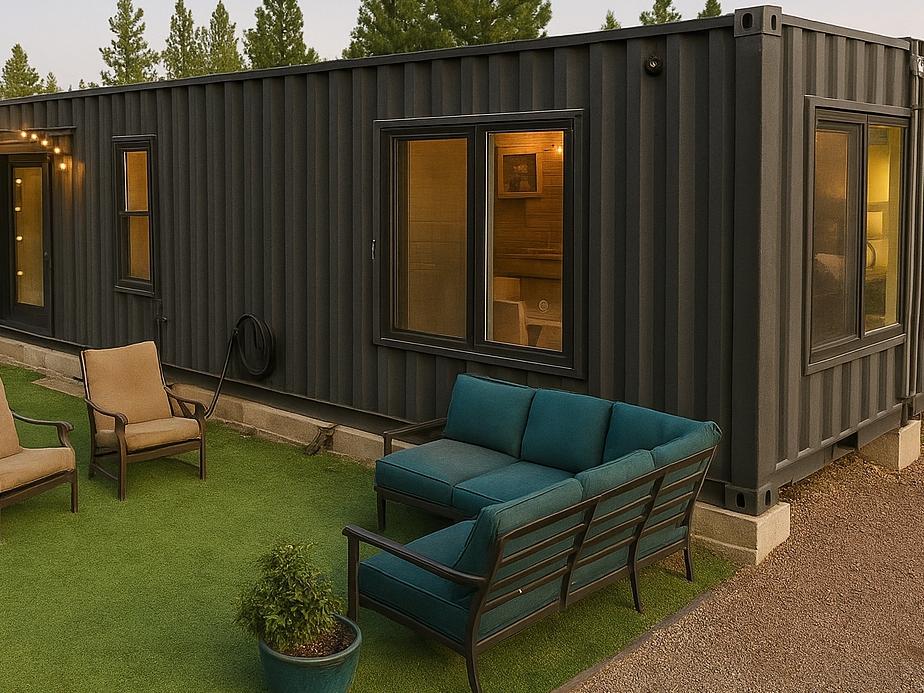$80k modular homes promise fast fix for Australia.
A US start-up says it can build homes in 40 days for less than the cost of a new car — but experts warn the prefab dream may not be the fix Australia needs.
Capsul, founded by entrepreneur Ali Zaidi, is launching in Australia with a $10m investment to deliver modular “designer pods” priced between $80,000 and $150,000.
Each home is built off-site, fitted with a kitchen, bathroom, flooring and solar-ready wiring, then delivered ready to move in.
RELATED: Block baby joy for Emma and Ben
Block confirms: ‘100pc’ changing the show
Couple uses DIY skills to flip homes
Mr Zaidi said the goal was to give young Australians, downsizers and small investors a faster, more affordable way to own property.
“Capsul isn’t just a housing company, it’s a revolution,” he said.
“In 30 to 40 days we can build a space that changes a life, powers a business or builds a community.”
The Capsul founder said early interest had come from first-home buyers, retirees and Airbnb hosts, and that plans were underway for eco-resorts and “Capsul Villages” across regional Australia.
“The old dream doesn’t work for the new generation,” Mr Zaidi said.
“For a fraction of the cost, Capsul buyers get a modern, beautifully designed space built in weeks, not years.”
$80k modular homes promise fast fix for Australia.
Melbourne buyers’ advocate and mortgage broker Madeleine Roberts said the concept had merit, but warned it wouldn’t solve the affordability crisis.
“The tiny home idea isn’t new,” Ms Roberts said.
“You can make a container look great, but if it’s sitting on cheap land with no jobs or infrastructure, people aren’t going to live there.”
Ms Roberts said the homes could work as granny flats or second dwellings, especially with new planning rules allowing faster approval.
“If the government backed families to add one of these in their backyard, it could really help,” she said.
“They’re cheap, quick and practical — that’s where they make sense.”
But the buyers advocate and mortgage broker said the real problem was still land.
“Even if the build is $150,000, land on Melbourne’s fringes starts around $700,000,” Ms Roberts said.
“You’re still up around $850,000. That’s not affordable housing, it’s just a smaller house with the same price problem.”
Each home is built off-site, fitted with a kitchen, bathroom, flooring and solar-ready wiring, then delivered ready to move in.
Ms Roberts said the major problem with tiny homes is that the banks see them as depreciating assets.
“They’re not like a house you can easily resell, without building approval you can’t lease them, and insurers won’t touch them,” she said.
Mortgage broker Rebecca Stella said the homes could still play a role as short-term accommodation or lifestyle dwellings.
“If they’re designed well and meet building codes, they could work in coastal areas like Torquay or Lorne,” Ms Stella said.
“People want flexibility — a space for grandparents or guests — and these pods could fill that gap.”
Ms Stella said modular designs would appeal to buyers chasing a minimalist lifestyle.
“It’s not going to fix the market overnight, but it’s part of the shift towards smaller, smarter living,” she said.
“People are realising they don’t need a big block to have a good life.”
“While the modular homes won’t end the housing crisis, what this idea reflects is the growing demand for faster, more flexible housing and a generation searching for a different way to live.”
Sign up to the Herald Sun Weekly Real Estate Update. Click here to get the latest Victorian property market news delivered direct to your inbox.
MORE: Couple uses DIY skills to flip homes
Why first home buyers rushed to buy Melb land
Hammer frenzy: Melb homes go wild
david.bonaddio@news.com.au
